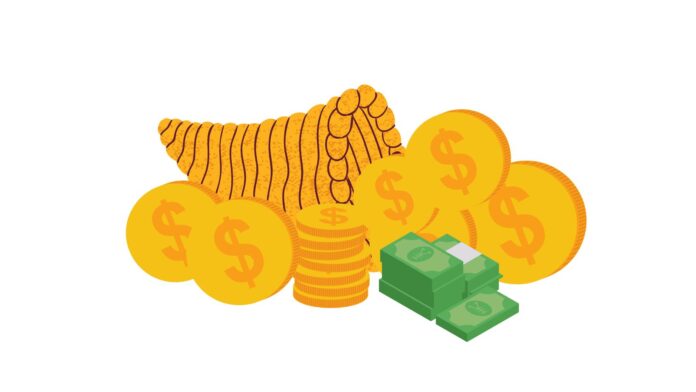

On Aug. 28, the Government of New Brunswick estimated a surplus of $199.6 million for the 2023-24 fiscal year — a significant underestimate from its projection of $40 million back in March.
But why does New Brunswick have an almost $200 million surplus? How does the province miscalculate its own surplus, again? The Aquinian’s editor-in-chief Giuliana Grillo de Lambarri spoke with the University of New Brunswick’s political science and economics professor Herb Emery to explain the surplus.
What is a surplus and why does New Brunswick have one?
Every province calculates its revenue and expenses annually. A surplus occurs when they have more revenue than budgeted, and if they have less, it’s a deficit.
In the case of New Brunswick, the Fiscal and Economic Update for the first quarter of 2023-24 reveals that the actual revenue is $151.3 million higher than projected. This is mainly due to a “stronger-than-anticipated growth in the economy” and grant agreements, such as higher funding for the Disaster Financial Assistance program after hurricanes Fiona and Ian.
Meanwhile, the actual expenses are lower than projected by $8.1 million because of reduced costs in Servicing Public Debt and Opportunities New Brunswick.
Emery said the province’s significant surplus can be attributed to two factors: inflationary conditions and federal financial support.
“The revenues are growing faster than expected and the revenue growth hasn’t transmitted yet into expenditures with wage contracts,” he said. “The second item is a lot of money from the federal government in particular is coming for construction projects or infrastructure, which they’ve been unable to get started on and so the money is not going out on any type of spending.”
How can the province miscalculate its own surplus?
Emery explains that the difficulty in anticipating the province’s budget is calculating the cost of living and the amount of federal government transfers.
He compared the province to a university. To calculate how much to charge for tuition, the university needs to consider other factors such as how much money it will get from the province, how much students are willing to pay, how much the university will receive in donations and more.
In the case of a province, the government has the same questions, but with an even bigger budget and more variables to consider.
“[The surpluses] are actually not that significant amounts compared to their total budget. They’re gonna have errors in forecasting,” he said.
Emery also highlights that, during the COVID years, the federal government has transferred more money to the Maritimes for infrastructure spending.
“When you lose price stability in the economy, it becomes very hard to project what your costs and spending will be.”
What can be done with the surplus?
While having miscalculations in the math is not surprising, some members of the opposition have criticized the government for the surplus itself. In an interview with the CBC in August, Liberal MLA René Legacy said that the government has had issues planning what to do with surpluses “pretty much since they got elected.”
Emery said the surplus will most likely be used to pay the province’s debt. The projected net debt is $11.7 billion, according to the Fiscal Update.
“When you take the surplus and then pay down the debt, what you do is create room to borrow [in the] future if you want to go back to deficit finance,” he said.
The Aquinian contacted Ernie Steeves, New Brunswick’s minister of finance, to provide background on how the province calculates the surplus but did not provide an answer.
